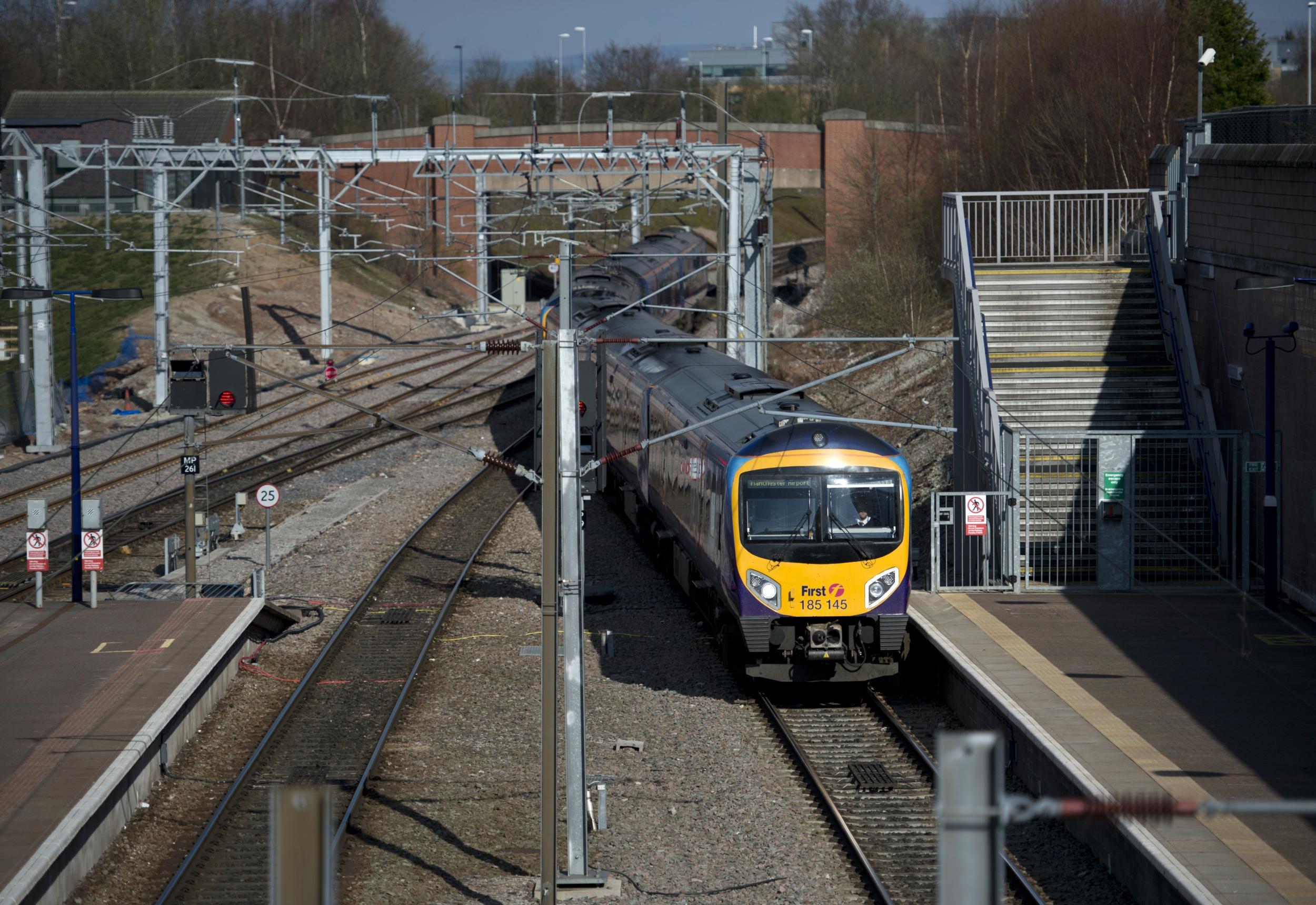Labour warns 'Northern Powerhouse' will be dead if Pennine rail electrification is cancelled
It will be impossible to slash journey times between cities – the central aim of the Northern Powerhouse promise – without electrification, party says

Government plans to scale back electrification of a key rail route will kill off the promised Northern Powerhouse project, Labour has warned.
It will be impossible to slash journey times between Northern cities – the central aim of George Osborne’s Powerhouse pledge – if TransPennine electrification is pulled, the opposition said.
The U-turn, revealed by Transport Secretary Chris Grayling, would also increase carbon emissions and hike the cost of running the rail network, Labour claimed.
Andy McDonald, the party’s transport spokesman, said faster services across the Pennines would be unworkable unless the track was fully electrified.
Hopes of cutting journeys between Manchester and Liverpool by nearly 30 minutes, and those between Leeds and Newcastle by more than 20 minutes, would then be dashed.
“By scrapping the electrification of the TransPennine route, the Transport Secretary is essentially pulling the plug on the proposed Crossrail for the North, the Northern Powerhouse project,” Mr McDonald said.
In contrast, Labour would spend £10bn on a “Crossrail for the North” to reverse decades of transport underinvestment that has “undermined the economic potential” of the region.
The warning comes after Mr Grayling provoked fury across the North when he said the railway between Leeds and Manchester was unlikely to be fully electrified.
Trains able to switch between electric and diesel power, called bi-mode locomotives, would instead be used on the busy route, he said.
Yet, in 2015, the Government promised to electrify the entire TransPennine railway from Liverpool to Newcastle, to deliver faster journey times and more capacity. Some work is already under way.
Then-Transport Secretary Patrick McLoughlin said two years ago that the scheme was “at the heart of our plan to build a Northern Powerhouse”.
But on a visit to Manchester, last week, Mr Grayling said: “We don’t need to electrify all of every route. There are places that are built in Victorian times where it is very difficult to put up electric cables.”
The comments came days after Mr Grayling asked two other electrification schemes, including of the Midlands Mainline from Kettering to Nottingham and Sheffield.
Mr McDonald said it “proves the “Midlands Engine” and the “Northern Powerhouse” are just more empty slogans from this Government”.
“The Tories are trying to pull the wool over people’s eyes by claiming that diesel bi-mode trains will deliver the same benefits as electrification, despite saying for years that failure to electrify the network costs more in the long run, causes more pollution, worsens air quality, lessens capacity and makes services slower and less reliable,” he said.
Mr McDonald said the running of electric vehicles can help to reduce CO2 emissions by 20 to 30 per cent, according to Network Rail figures.
Furthermore, maintenance costs for electric trains are 33 per cent lower than for diesel, while electric passenger vehicles fuel savings are between 19 and 26p per vehicle mile.
But Mr Grayling has insisted the use of bi-mode train would still cut journey times and improve passenger comfort.
Join our commenting forum
Join thought-provoking conversations, follow other Independent readers and see their replies
Comments
Bookmark popover
Removed from bookmarks